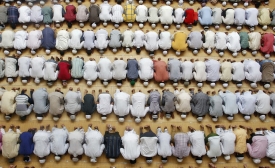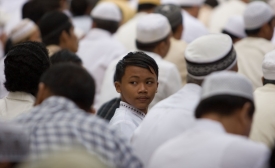isis
The State Department is considering scaling back its direct involvement in online campaigns to discredit the Islamic State after a review by outside experts cast new doubt on the U.S. government’s ability to serve as a credible voice against the terrorist group’s propaganda, current and former U.S. officials said.
The Islamic State of Iraq and Syria, or ISIS, is a new kind of threat facing the world today. ISIS takes advantage of their huge social media audience to post narratives of radicalization and brutality, to terrorize people, and to spread their philosophy to attract supporters worldwide. Thus, a new form of terror via cyber space, or “terrorism 2.0,” has emerged.

On India's strategic communications to foil ISIS.
“They [Congress] tend to view… efforts to influence civilians outside an area of conflict as Public Diplomacy, the responsibility of the Department of State or Broadcasting Board of Governors.” By contrast, “We [at US Special Operations Command] believe there is a complementary role for the Department of Defense in this space which acknowledges the need for a civilian lead, but allows DOD to pursue appropriate missions, such as counter-recruitment and reducing the flow of foreign fighters,” he wrote.
The Paris attacks were the most audacious act in Europe by the Islamic State of Iraq and Syria (ISIS), signaling the dawn of a new era in which nowhere is immune from terrorist threats. However, they have not sparked a significant shift in policy by the international community. [...] the global reaction to the Paris attacks is playing right into ISIS’s hands.
The struggle against Islamic State in Iraq should be strategic and diplomatic in the true sense of the word: the creation and disruption of coalitions built on profound geopolitical analysis and accompanied by effective public diplomacy.

Public diplomacy tools to combat the Islamic State, Part 2.







